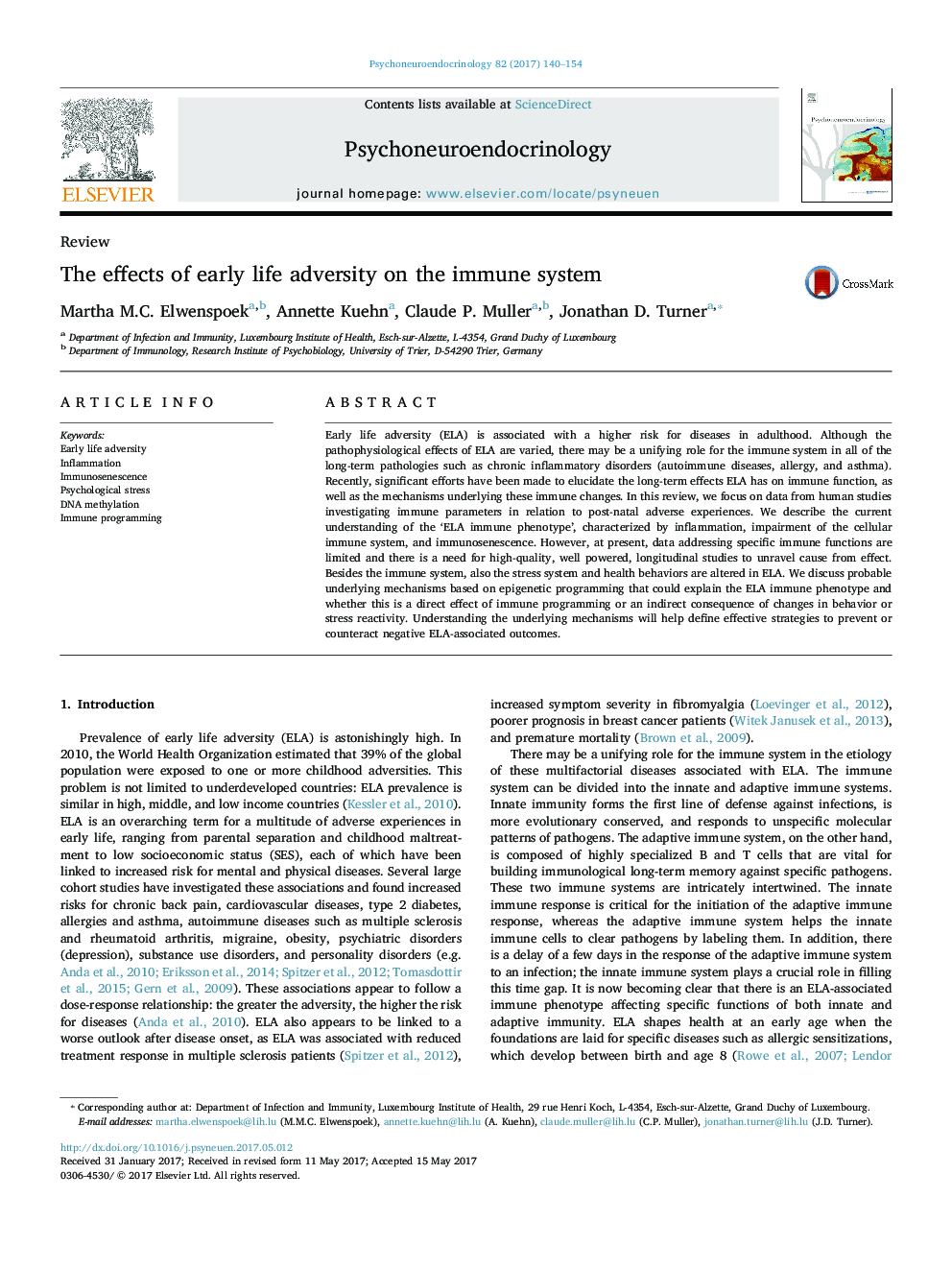| کد مقاله | کد نشریه | سال انتشار | مقاله انگلیسی | نسخه تمام متن |
|---|---|---|---|---|
| 4934362 | 1433961 | 2017 | 15 صفحه PDF | دانلود رایگان |
Early life adversity (ELA) is associated with a higher risk for diseases in adulthood. Although the pathophysiological effects of ELA are varied, there may be a unifying role for the immune system in all of the long-term pathologies such as chronic inflammatory disorders (autoimmune diseases, allergy, and asthma). Recently, significant efforts have been made to elucidate the long-term effects ELA has on immune function, as well as the mechanisms underlying these immune changes. In this review, we focus on data from human studies investigating immune parameters in relation to post-natal adverse experiences. We describe the current understanding of the 'ELA immune phenotype', characterized by inflammation, impairment of the cellular immune system, and immunosenescence. However, at present, data addressing specific immune functions are limited and there is a need for high-quality, well powered, longitudinal studies to unravel cause from effect. Besides the immune system, also the stress system and health behaviors are altered in ELA. We discuss probable underlying mechanisms based on epigenetic programming that could explain the ELA immune phenotype and whether this is a direct effect of immune programming or an indirect consequence of changes in behavior or stress reactivity. Understanding the underlying mechanisms will help define effective strategies to prevent or counteract negative ELA-associated outcomes.
Journal: Psychoneuroendocrinology - Volume 82, August 2017, Pages 140-154
